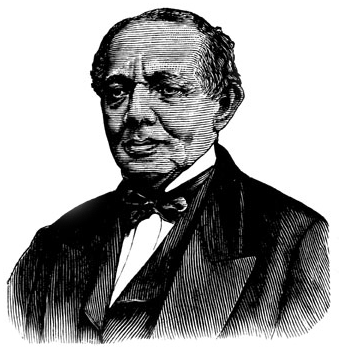
William Whipper
Encyclopedia

William Whipper was an African American
African American
African Americans are citizens or residents of the United States who have at least partial ancestry from any of the native populations of Sub-Saharan Africa and are the direct descendants of enslaved Africans within the boundaries of the present United States...
abolitionist and businessman. He advocated nonviolence and co-founded the American Moral Reform Society, an early African American abolitionist organization.
Early life
Born February 22, 1804 in Lancaster, Pennsylvania to an African American house servant and her white employer, William Whipper epitomized the unique prosperity that Northern Blacks were able to attain in the mid-19th century. William had three siblings Alfred, Benjamin and Mary Ann. Whipper was a successful businessman and played a key role in the antislavery movement as a reformer.After moving to Philadelphia in the 1820s, he began focusing his energies on his business pursuits. In 1834 he opened a free labor and temperance grocery store. His support of the temperance movement
Temperance movement
A temperance movement is a social movement urging reduced use of alcoholic beverages. Temperance movements may criticize excessive alcohol use, promote complete abstinence , or pressure the government to enact anti-alcohol legislation or complete prohibition of alcohol.-Temperance movement by...
was motivated by liquors destructive effect on Africa and the belief that alcohol consumption was a contributing factor for Africans selling their own people into slavery. In conjunction with his support for the temperance movement, Whipper began actively participating in the antislavery movement as well.
As a successful businessman
In 1835 Whipper relocated to Columbia, Pennsylvania with fellow black entrepreneur Stephen Smith. The pair created one of the state’s premier lumberyards and accrued substantial wealth demonstrating the benefits of northern freedom. Whipper used his new found wealth to further his personal fight for moral reform and abolition. He utilized his assets to the benefit of the antislavery movement by helping runaway slaves escape to the north. His sister Mary Ann married James Hollensworth and settled in Dresden, OntarioDresden, Ontario
Dresden is a community in southwestern Ontario, Canada, part of the municipality of Chatham-Kent. Dresden is best known as the home of Josiah Henson, the former U.S. slave whose life story was the inspiration for the novel Uncle Tom's Cabin...
, Canada, a final destination on the Underground Railroad. Mary Ann and James were the overseers of William Whipper's investments in Dresden. William Whipper operated a major underground railroad
Underground Railroad
The Underground Railroad was an informal network of secret routes and safe houses used by 19th-century black slaves in the United States to escape to free states and Canada with the aid of abolitionists and allies who were sympathetic to their cause. The term is also applied to the abolitionists,...
station and provided shelter for slaves primarily from Virginia and Maryland, moving them in part in the railroad cars he owned.
Ideology and contributions to the abolitionist and antislavery movement
Whipper’s ideology regarding antislavery was unique and complex. One of his main tenets rested in moral reform. Moral reform refers to the idea that the abolitionist movement "served as a check on the evil dispositions of blacks and inculcated moral principles.Initially Whipper believed that white prejudice against Black Americans stemmed from the condition in which blacks found themselves, not just the color of their skin. In order to overcome their condition, Whipper stipulated that "blacks had to improve their mental, economic, and moral situations.By making such improvements, blacks would seemingly conform to white standards of living, making social acceptance more attainable.
Another key component of Whipper’s ideology was rooted in idea of nonviolence and rational persuasion. At the age of 24, Whipper published his famous speech Address on Non-Resistance to Offensive Aggression. This address suggested that nonviolent means of moral righteousness were necessary to encourage a peaceful political movement towards change. This address has been a considered a precursor to what would become some of the same nonviolent strategies followed during later civil rights movements.
Furthermore, Whipper demonstrated his dedication to the notion of moral reform via the creation of the American Moral Reform Society. In 1835 he attended the annual convention of the Improvement of Free People of Color. He urged delegates to adopt a resolution, which ended the usage of the word "colored." Because of his persistence, the delegates decided to organize a society that would have no racial boundaries. The convention gave birth to the American Moral Reform Society, and gave Whipper credit as a founding father. The American Moral Reform Society attempted to promote general aims such as educating blacks, establishing a black press, and printing histories of the blacks.
External links
Family http://www.mnsi.net/~wishc/heritageroom/whipperfamily.htm

